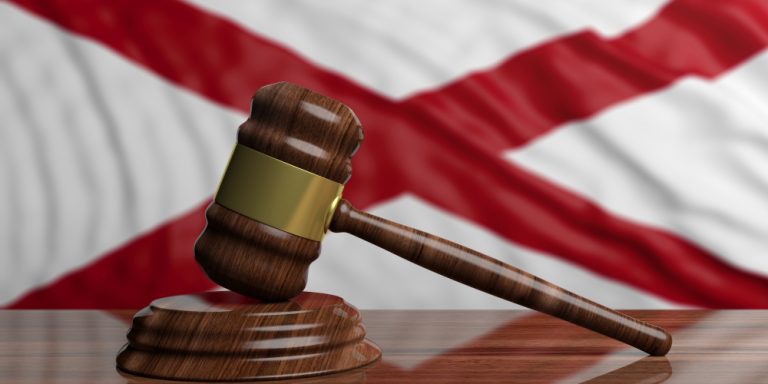SCOTUS Rules LGBTQ Workers are Protected under Title VII of the Civil Rights Act
SCOTUS Rules LGBTQ Workers are Protected under Title VII of the Civil Rights Act
Federal ruling clarifies the confusion of the circuit courts that workplace discrimination based on sexual orientation and gender identity is unlawful.
In 2017, 11.3 million Americans identified as lesbian, gay or bisexual with roughly 20% of them reporting they experienced workplace discrimination because of their sexual preferences. While it has been long accepted that gender stereotyping is not allowed under Title VII of the Civil Rights Act’s prohibition on discrimination “because of sex,” there has been confusion in the circuit courts over whether this prohibition also covers sexual orientation and gender identity discrimination, including claims that being gay, lesbian, or transgender constitutes nonconformity with a gender stereotype.
In the 6-3 ruling in Bockstock v. Clayton County, the U.S. Supreme Court eliminated any confusion by determining that employers cannot discipline, fire, fail or refuse to hire, or otherwise discriminate against an employee (or prospective employee) for being homosexual or transgendered. In other words, sexual orientation and gender identity discrimination violates Title VII’s prohibition on discrimination “because of sex.”
The Evolution of Title VII
Enacted in 1964, Title VII of the Civil Rights Act, prohibits employment discrimination “because of sex.” In 1989, the U.S. Supreme Court found that the sex discrimination provision of Title VII meant that gender stereotyping must be irrelevant to employment decisions.
For many years after 1989, there was no additional guidance from SCOTUS on whether the sex discrimination provision of Title VII encompassed sexual orientation or gender identity discrimination, until 2015.
In 2015, the Equal Employment Opportunity Commission issued a memo declaring that Title VII does cover sexual orientation discrimination. Calling prior decisions “dated,” the opinion opened the door to further evolution of Title VII.
However, this new broader standard was met with mixed results, creating a circuit court split, and the U.S. Supreme Court’s decision to accept certiorari to consider a trio of cases where an employer fired long-time employees simply for being homosexual or transgender and the employee sued alleging sex discrimination under Title VII. On June 15, the Supreme Court resolved the split and concluded that the sex discrimination provision of Title VII meant that sexual orientation and gender identity must also be irrelevant to employment decisions.
Significance for Employers
Under federal law, an employer can no longer take adverse action against an employee simply for being gay or transgender. Sexual orientation and gender identity have been added to the list of grounds of employment discrimination prohibited under Title VII. Thus, an employer who intentionally penalizes an employee for being homosexual or transgender necessarily violates Title VII.
This outcome is expected to make a big difference for the estimated 8.1 million LGBTQ workers across the United States, and have far-reaching implications for employers throughout the nation, including Florida. Until this decision, very few states offered protection for LGBTQ workers. Now, millions of LGBTQ American workers are protected under federal law.
‘But For’ Causation Standard
Title VII prohibits employers from taking certain actions “because of sex,” i.e., “by reason of” or “on account of.”
In analyzing whether an employer discriminated against an employee because of sex, the Court adopted the traditional “but for” causation standard. This is a sweeping standard. An employer cannot escape liability just by citing some other factor that contributed to its challenged employment decision. So long as the employee’s sex was one but-for cause of that decision, that is enough to trigger Title VII liability exposure.
‘Because of Sex’ Discrimination in the Workplace
It has already been established that, where an employer takes adverse action against a woman for being insufficiently feminine or a man for being insufficiently masculine, the employer does so in part because of sex, exposing the employer to Title VII liability. Now, the Supreme Court has made it equally clear that where an employer takes adverse action against an employee for being homosexual or transgender, the employer does so in part because of sex, exposing the employer to Title VII liability.
Consider two employees, materially identical in all respects, who are both attracted to men—one is a woman, the other is a man. If the employer fires the man for no other reason other than the fact he is attracted to men, the employer discriminates against the employee because of sex in violation of Title VII.
Likewise, where the employer fires an employee who has identified as female at birth but now identifies as male, but retains an otherwise identical employee who was identified as male at birth, an employer can be exposed to Title VII liability discrimination because of sex.
Similarly, where an employer fires an employee who informs the employer after they are hired that they plan to live and work full-time as the opposite gender, an employer discriminates against the employee because of sex in violation of Title VII.
What Do Employers Need to Do Now?
The answer is simple. An employee or prospective employee’s homosexuality or transgender status cannot play a role in an employers’ decisions.
It is impossible to discriminate against an individual for being homosexual or transgender without discriminating against the individual based on sex. This is exactly what Title VII forbids.
To avoid the foregoing scenarios and ensure employers are not violating Title VII, employers should review and revise their handbooks, training and orientation materials and overall approaches to workplace relations, accordingly.
Reprinted with permission from the June 18, 2020 edition of Daily Business Review © 2020 ALM Media Properties, LLC. All rights reserved. Further duplication without permission is prohibited, contact 877-257-3382 or reprints@alm.com.







